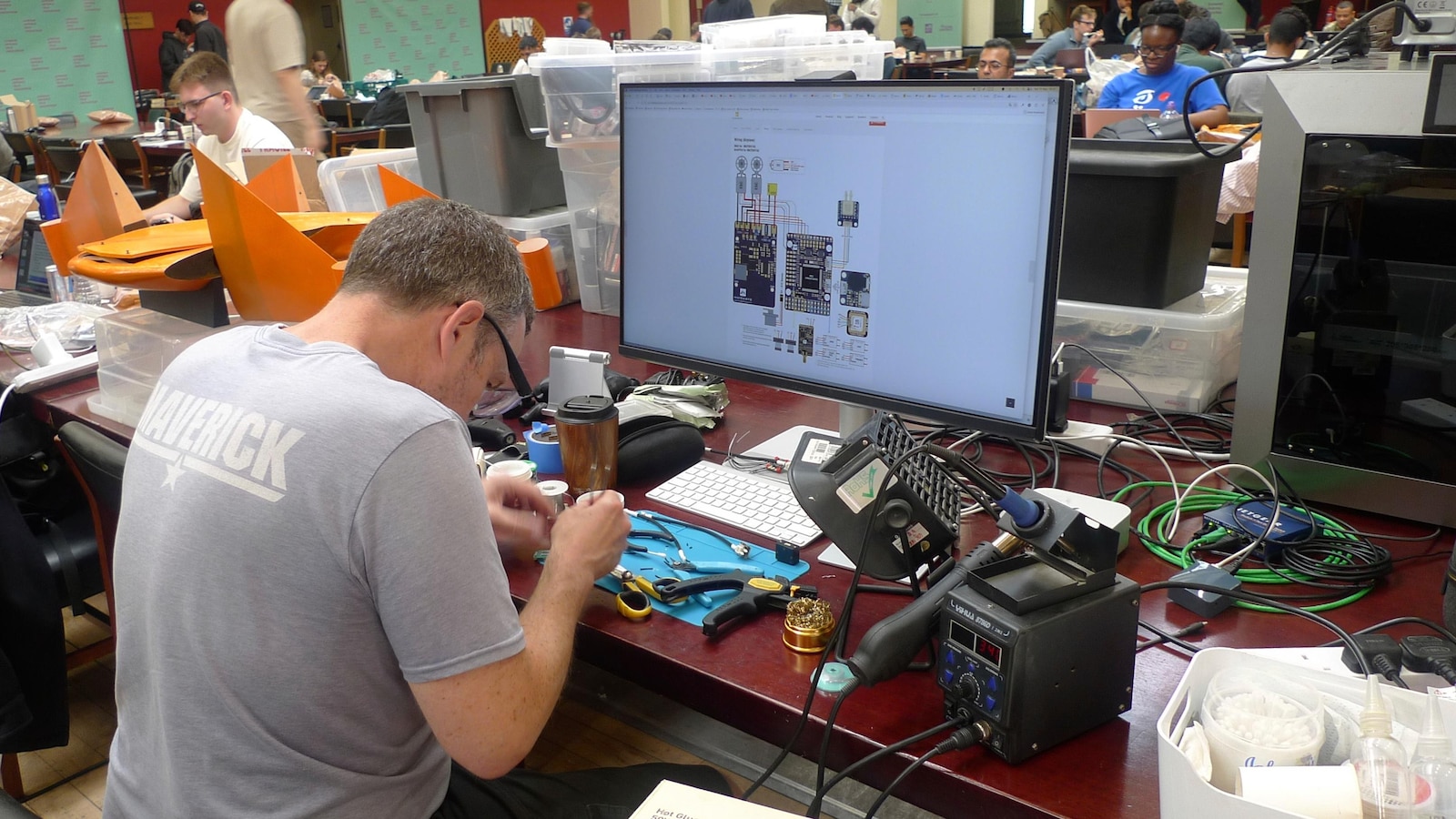Key Takeaways
- A 24-hour hackathon at Sandhurst Military Academy gathered tech enthusiasts to develop defense solutions amid escalating geopolitical tensions.
- The event aimed to stimulate innovation in military technology, highlighting Europe’s push to enhance its defense capabilities.
- Hackathons have become crucial for fostering a startup culture in defense, moving away from reliance on traditional military contractors.
Technological Innovation in Defense
At Sandhurst Military Academy in England, a recent 24-hour hackathon brought together engineering students, tech professionals, and hobbyists to tackle defense technology challenges amidst Europe’s increasing military concerns due to Russia’s aggression in Ukraine. This event attracted participants eager to contribute their skills to address critical issues facing the continent.
Aniketh Ramesh, a robotics expert with a startup background, noted, “Given the geopolitical climate, defense tech is relevant now more than ever,” emphasizing the significance of such gatherings. Ramesh’s team aimed to create drones capable of operating without GPS, highlighting that innovations in robotics are becoming more about conceptualization rather than technical obstacles due to decreased costs and improved accessibility.
Teams selected from various problems proposed by defense startups and military-related entities. Solutions ranged from developing algorithms for predicting target movements to creating autonomous medical evacuation aircraft and sensor-packed plastic devices for battlefield use. These diverse projects showcase an array of creative solutions aimed at enhancing military operations.
This hackathon is part of a wider initiative inspired by Ukraine’s adaptive wartime innovations. Europe is actively working to enhance its defense systems, propelled by NATO’s directives and increasing investment in defense technology. As Richard Pass, a co-founder of a London hackathon, points out, there is a marked shift from traditional expensive military systems towards more scalable, cost-effective technologies.
Notably, the competition format encourages collaboration among participants who might not typically intersect, merging engineering know-how with commercial acumen and insights from military experts. This approach aims to cultivate a robust startup ecosystem within the European defense sector, challenging the historical dominance of large contractors.
Despite progress, European defense startups still face hurdles, as the continent lags behind the U.S. in this realm. Reports indicate that venture capital investment in European defense tech has surged, indicating a dynamic market ready for growth. The European Union is determined to mobilize significant funding to advance capabilities in drones, AI, and autonomous systems to maintain competitiveness and address emerging threats.
While the path forward is complex, these initiatives represent a crucial step toward enhancing Europe’s defense infrastructure. As teams collaborated late into the night at the hackathon, the informal environment facilitated creativity and agility—qualities that the defense sector is eager to embrace amid evolving global challenges.
The content above is a summary. For more details, see the source article.















